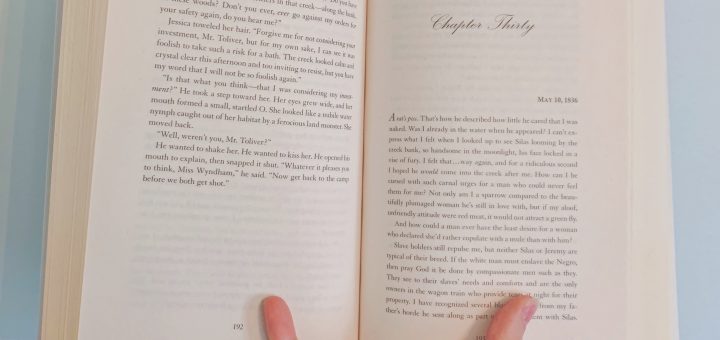Book Review: Truth be Told by former Chief Justice Beverley McLachlin

Truth Be Told: My Journey Through Life and the Law by Beverley McLachlin
Simon & Schuster, 373 pages, $39.99
The days of a Supreme Court Justice are long. Filled with hours of research, reading, and writing. It’s not the typical sunset career one may dream of. It takes a special type of person. So, it seems on brand that even in her retirement, former Chief Justice Beverley McLachlin cannot sit still. Just several months after her retirement from the country’s highest bench, the former Chief Justice released a fictional thriller in mid-2018. She followed this with a non-fiction piece late last year—her memoir, Truth Be Told: My Journey Through Life and the Law. McLachlin did this, all the while becoming a member of the Court of Final Appeal in Hong Kong and penning her first unanimous decision at this court, which was released this month. If her recent decision is anything like her new book, it’s worth the read.
Life Before the Supreme Court
McLachlin begins chronologically and delves into her ordinary upbringing, growing up in a small town called Pincher Creek. She recounts her early days residing on the family ranch in rural Alberta, rich with activity and freedom. However, even as a young girl, McLachlin candidly describes her struggles with depression when the long winters brought a crippling sense of isolation. She praises her teachers and her local library, which saved her from “premature intellectual death” and opened her eyes to worlds outside of the one she knew (McLachlin, 33).
Readers meet her late husband, Rory, who initially inspired McLachlin to pursue the practice of law. The endearing admiration she has for him spills off the page. In the years following their marriage, McLachlin discusses the welcoming of their son, Angus, and her journey through motherhood. She provides an honest look at what her first few months of parenting were like, and how her need for an external world with “intellectual explorations” saved her from the struggles of inadequacy, doubt, fear, and anxiety (McLachlin, 153).
In her early years as a mother, she transitioned from a professor to a judge, quickly climbing the ladder to the Supreme Court of British Columbia. After only eight years as a judge, Prime Minister Brian Mulroney called, and kept calling, until she reluctantly agreed to sit as the next Justice of the Supreme Court of Canada. These events, readers learn, all transpire during a period of grief, as McLachlin and her son grappled with the death of their husband and father, who passed after a long fight with cancer.
Supreme Court Justice
For a reader who is looking for scandalous details on the inner workings of the Court, McLachlin is scant on these details. However, for someone who has the legal zeal of a 1L, she shares a blend of interesting and trivial behind the scenes details. From what goes on behind closed doors after a matter is heard to which sitting Supreme Court Justice knows his or her way around a filleting knife, readers are provided with “a day in the life of a Supreme Court Justice” type commentary. She also speaks of her encounters with noteworthy figures such as Hillary Clinton, President George W. Bush, Ruth Bader Ginsberg, and, of particular significance to McLachlin, the Queen Elizabeth II.
Aside from matters outside the court room, readers are also graced with an inside scoop on McLachlin’s convictions concerning key cases in Canadian history—such as R v Keegstra, Loyola High School v Quebec, R v Seaboyer, R v Morgentaler, and R v Jordan. The former Chief Justice provides a synopsis of these landmark decisions in Canadian law that made up her tenure on the Court. McLachlin does not shy away from acknowledging how her own personal life and experiences informed the way she viewed issues as a juror. In Canada (AG) v Bedford, McLachlin reminisced of her early days as a practicing lawyer where she was handed a file on a woman charged with the offense of vagrancy—prostitution, as she was told. She speaks of the privilege she felt in drafting the reasons in favour of Indigenous title in Tsilhquo’in Nation v British Columbia, having grown up and forged friendships with members of the Piikani community.
Perhaps most notable though, McLachlin speaks of a particular legal debate that peaked during her time on the Supreme Court. Rodriguez v British Columbia (AG). In this case, she dissented, finding that a prohibition on assisted suicide was contrary to s.7 of the Charter of Rights and Freedoms [Charter] and was not saved under s.1.
Years later, in a decision authored by Chief Justice McLachlin, the majority of the Supreme Court agreed with her position in Rodriquez and reversed its view on assisted dying in Carter v Canada (AG). McLachlin reveals how this controversial issue was more than just a legal debate, sharing that when her husband, Rory, neared the end of his life, he struggled with a desire to live. Before hearing Rodriquez, McLachlin relives a conversation she had with then Chief Justice Lamer, voicing her hesitations with sitting on the case. Lamer told her, “Judges are human beings. They bring their life experiences to the cases they decide. That is good, provided that they remember that their ultimate duty is to be faithful to the law” (McLachlin, 242). McLachlin’s summation of her time on the Supreme Court provides as detailed of a view as one may logically expect—a degree of candour with respect to her own thoughts but protective of her discussions among her peers.
Where McLachlin does not hold back, however, is in describing the controversy between herself and then, Prime Minister Stephen Harper. Back in 2014, the Prime Minister accused McLachlin of wrongly interfering in the appointment of the next Justice of Supreme Court, specifically the nomination of Justice Marc Nadon of the Federal Court of Appeal. McLachlin, as she was entitled, uses her platform to tell her side of the story and challenges the narrative that Harper had created. As she explains, McLachlin reached out to Justice Minister Peter MacKay before Marc Nadon was ever announced as a nominee, cautiously alerting the Minister to the possibility of a challenge if an appointment was not from the Quebec bar or was not a judge on a Quebec court. Months later and after a few court challenges that didn’t go Harper’s way, the Chief Justice wakes up to allegations against her character on the front page of the newspaper. As McLachlin puts it, the Prime Minister was unhappy and was “determined to launch a strike” against her. The two never reconciled, a point that becomes overtly clear when McLachlin goes on to joke that she pondered whether to call her new dog Harper so she could say “Harper, sit! Harper, lie down!”.
One may expect a memoir from a former sitting Supreme Court Justice to be riddled with legal insights, a deep focus on her life as a judge, or a thorough commentary of landmark decisions in her tenure. In this regard, McLachlin falls short. In fact, a significant portion of her book focuses on her early life in Pincher Creek and journey leading up to the Supreme Court. To those looking for a book that focuses primarily on the ins and outs of what it’s like to be on Canada’s highest bench, it may be a disappointment. However, the trade-off is an exceptional life story where McLachlin humbly, but boldly, invites readers into intimate moments of her journey through time. From overcoming gender barriers in a profession that was not ready for women to climbing the ladder from a County Court Justice to Supreme Court Justice in just under eight years, McLachlin is clearly extraordinary. Despite her deep intellect, however, she still manages to present her story as relatable and accessible for the average Canadian, lawyer and non-lawyer alike. A feat unsurprising to those who have read her decisions from the bench.
With Truth be Told, McLachlin proves her gift of writing should not be confined to legal judgments. Her book is insightful, inspiring and compelling. It’s worth the read or, better yet, the listen, if one wishes to hear the former Chief Justice say the word, “swagger”.







Join the conversation